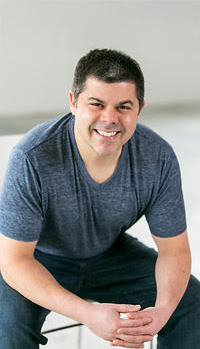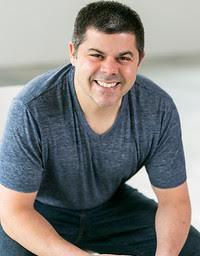
9 minute read
Why Smart Dental Professionals Are Turning to Life Coaches for Success
Dr. Eric Block DMD, CAGS, FICOI, FICD, FAADS, FIADFE
About halfway through my career, I hit rock bottom. I had sensed it building up for years, but eventually, it escalated to the point where I hated dentistry. I regretted choosing it as my profession. Every day felt like a struggle, and I couldn’t wait until retirement. I suffered from stress and anxiety. The pursuit of striving for clinical perfection and the emotional toll of patient interactions drained me. I dreaded going to work. I wanted out of dentistry.
At that point, I told myself I had three options:
1. Stay in dentistry and endure 30 more years of misery.
2. Quit dentistry and start over in another field. (I was in 250K of debt, and this was not a realistic option)
3. Take some butt-kicking action to figure out and address what was causing my pain.
I am proud to say I chose the third option. I contacted a local therapist, which became one of the turning points in my career and life. With regular bi-weekly therapy sessions, I not only understood where my issues were coming from, but I beat my burnout and rekindled my passion for dentistry. I now enjoy going to work every day.
This work on myself didn’t stop there. Mental health isn’t a “one-and-done” deal. It’s an ongoing process. Over the years and still to this day, I’ve benefited tremendously from working with life coaches, hypnotherapists, mentors, consultants, peers, and mastermind groups.
Let’s focus on my experience with life coaching.
The Role Of A Life Coach In Personal And Professional Growth
Growing up, I was always drawn to getting or becoming a coach. I played competitive tennis, captained my high school team, and even walked onto Tulane’s Division One tennis team. I coached both adults and kids in summer camps and country clubs. I also sought tutors and prep courses to help me through college, my Dental Admission Test (DAT), and challenging subjects like gross anatomy.
Why did I hire these coaches? For success and self-improvement. I wanted to get better over time.
So why should life or our dental profession be any different? If we invest in coaches for sports and academics, why not for our careers and personal well-being?
Throughout my professional life, I’ve constantly sought ways to avoid burnout, stay energized, become more efficient and productive, and become a happier dentist. Life coaching has helped me do just that.
LIFE COACHING VS.TRADITIONAL THERAPY
Therapy and life coaching play valuable roles but serve different purposes. Here’s my two cents on the distinctions:
• Therapy delves into past experiences and mental health struggles. It helps diagnose issues like anxiety and depression and, for me, also involves prescribed medications and deep emotional processing.
• Life coaching focuses on the present and future—helping you set and achieve goals. It’s about pushing past roadblocks and making things happen in your personal or professional life. Often, the answers are within us, and the life coach guides you by asking the right questions.
Many say, “I’ll do what I love after I retire.” But why wait? Life coaching helps you take action today to build the life and career you truly want and deserve.
WHO CAN BENEFIT FROM A LIFE COACH?
Surgeons, entrepreneurs, athletes, physicians, lawyers, executives, and, yes, all dental professionals. Anyone in a high-stress, highresponsibility career can benefit.
Dentistry is demanding and complex. We spend years perfecting our clinical skills, but often neglect our most important tool— our mind. We are frequently so focused on helping our patients and pleasing others that we forget about ourselves.
Life coaching is yoga for the brain. We go to the gym to strengthen our bodies—why not do the same for our mental well-being? Exercise your most important piece of equipment, your brain.
Different Types Of Life Coaching
Just as dentists specialize in different areas, life coaches can have different focuses or niches, such as:
• Leadership Coaching: Helps you become a stronger, more effective leader in your practice.
• Wellness Coaching: Focuses on managing stress, improving work-life balance, and maintaining overall well-being.
• Executive Coaching: Helps practice owners and entrepreneurs refine business strategies and personal development.
• Relationship Coaching: Guides individuals in strengthening personal and professional relationships.
Some coaches may only work with women, while others work only with men. It’s also not a one-size-fits-all. You may not click with the first coach you meet, and must consult with multiple coaches until you find the right one.
Accountability And Action
One of the most significant benefits of a life coach is accountability. A coach doesn’t just listen; they push you to follow through. You and your coach collaborate to identify what’s holding you back and create an action plan to take consistent steps toward your improvement.
Think of it like this: when you hire a personal trainer, you don’t just expect them to hand you a workout plan and walk away. You expect them to push you, track your progress, and adjust your strategy. A life coach does the same, but for your career and personal growth.
They help you be the best version of you.
The Roi Of Life Coaching
All of this sounds great, but is it worth the price of hiring a life coach? Understand this: burnout is not good for business.
A disengaged dentist diagnoses less, treats less, and ultimately earns less. Negativity can quickly take up mental space, inhibit productivity, and lead to feelings of unfulfillment. When you’re burned out, even the most minor setbacks feel overwhelming. It’s like being a fly stuck on flypaper—you can’t move forward.
A re-energized, motivated dentist, on the other hand, will be more productive and perform more procedures. They will remove or minimize negativity and focus on goals rather than self-doubt. They will enjoy their work and have longer, more lucrative careers.
Patients Can Sense Your Burnout
If you are unhappy, your family and staff will be directly affected. But patients will also sense this, too. Patients aren’t just looking for a skilled dentist; they want an engaged, passionate, and fully present provider. They can tell when you’re just going through the motions versus genuinely enjoying your work.
Sure, we all have bad days. But something needs to change if every day feels like a bad day. It’s exhausting to be unhappy, and it’s also not a good look for your patients. Let’s face it; no one wants a sad, tired dentist working on them. They would prefer an energetic and fully present one interested in them.
When patients sense negativity or an unhappy culture, they’re less likely to return and less likely to refer their friends, family, and colleagues.
THE SOONER, THE BETTER
A young dentist recently visited my office, fresh out of school and already disillusioned with dentistry. They had secured two associate jobs and made decent money, but felt utterly overwhelmed, burnt out, and were already mapping out an exit strategy. Like many recent grads, they were drowning in debt and couldn’t simply walk away—but they also had no idea what to do or where to turn for guidance.
One of their biggest frustrations was how difficult clinical dentistry felt. Procedures took far longer than expected, and they found themselves dreading the hands-on work they once thought they would enjoy. And, like my experience, they weren’t just physically drained—they were mentally checked out, questioning whether they had chosen the wrong profession entirely.
Many dentists can relate to this phase in the beginning. Clinical dentistry is hard and can feel like an uphill battle when you’re still developing your skills and confidence. The truth is, dentistry is much more enjoyable when you’re good at it—when procedures flow smoothly, when your systems are efficient, and when you trust your abilities. But reaching that point takes time, practice, and the proper guidance.
Instead of letting them spiral further into frustration, I focused on coaching them from two angles:
• The Clinical Side – I walked them through my workflows for some of my procedures. Minor tweaks in technique, ergonomics, and case selection can make an enormous difference in how enjoyable dentistry feels.
• The Mental Side – I reassured them that their feelings were normal. Most dentists struggle early on because the learning curve is steep. It’s not that they weren’t cut out for dentistry— it’s that they hadn’t yet built the confidence and proficiency to make it feel rewarding and enjoyable.
I also shared my journey—how I redefined my approach to dentistry and built a practice that energized rather than drained me. Their reaction was eye-opening: “I didn’t think dentistry could be like this.”
We then created a plan of action - we discussed the next steps to work on what they learned. Understanding that self-improvement takes time, persistence, and doesn’t happen overnight is critical.
That session gave them a glimmer of hope that things could change. But their most important realization was this: they couldn’t do it alone. Dentistry is challenging, especially in the early years. It’s easy to feel lost without the right coaching and support system.
Conclusion
For many dentists, the biggest struggle is work-life balance. Life coaching can be incredibly helpful in identifying what’s missing and how to create a more fulfilling life—both inside and outside the operatory.
Imagine the life and career you truly want.
If you’re feeling burned out, disconnected, or missing out on life—you’re not alone.
We are not robots. We are humans with flaws. Yet, we are responsible for providing excellent care while maintaining our happiness and fulfillment.
Take action today. Invest in yourself. Get a coach.
Dr. Eric Block is a full-time practicing dentist, author, key opinion leader, and investor in dental start-up organizations. He is the Co-founder of the International Academy of Dental Life Coaches or IADLC.com, Wellness Ambassador to the American Dental Association, and the Former Chairman of the Massachusetts Dental Society’s Health and Wellness Committee. He hosts the Stress-Free Dentist podcast show and Facebook group and can be reached at ericmblock@gmail.com and check out www.TheStressFreeDentist.com for Dr. Block’s upcoming events. Facebook: https://www.facebook.com/eric.block.790 LinkedIn: linkedin.com/in/eric-block-dmd Instagram: @thestressfreedentist Amazon Author: amazon.com/author/ericblock

The International Academy of Dental Life Coaches: https://iadlc.com/ Stress-Free Dentist Website and Podcast: https://www.thestressfreedentist.com/podcast/ Youtube: https://www.youtube.com/playlist?list=PL1rmGiqZxkwjlly tBuPwgbs0NZge8GmfM
Spotify: https://open.spotify.com/show/664pxoZLa3JjxixJfK9CuN Pandora: https://www.pandora.com/podcast/ the-stress-free-dentist-show/PC:1001083781












